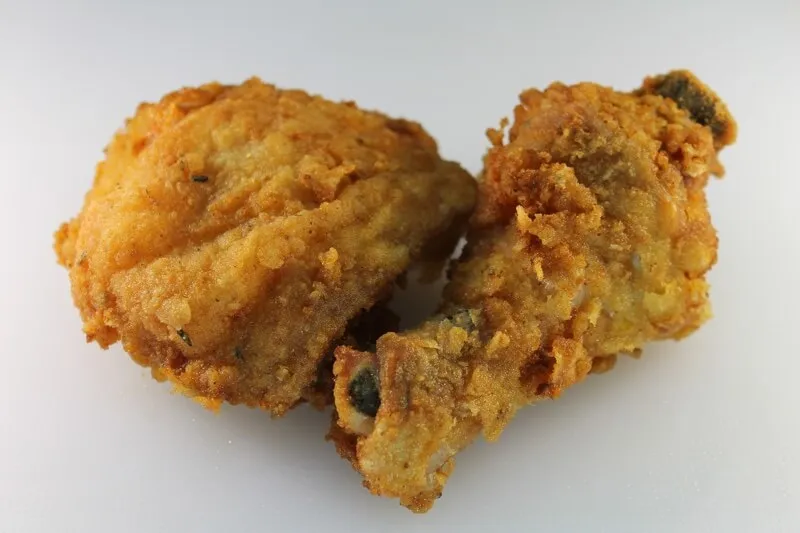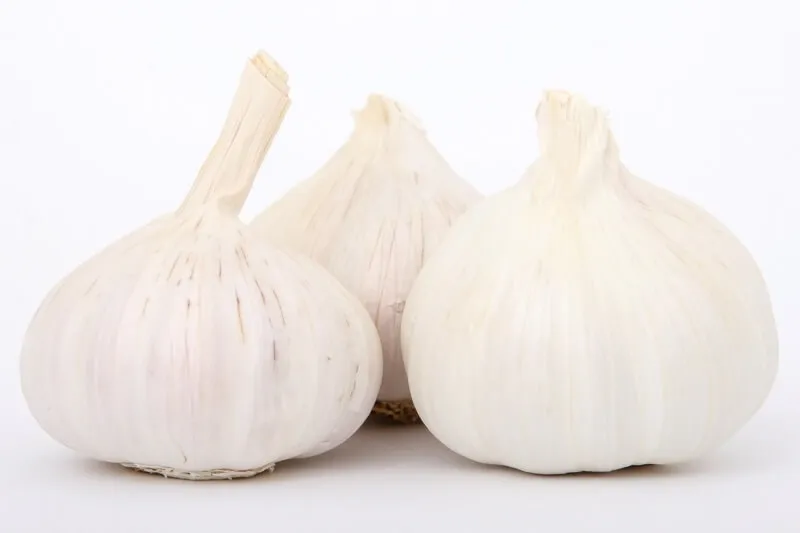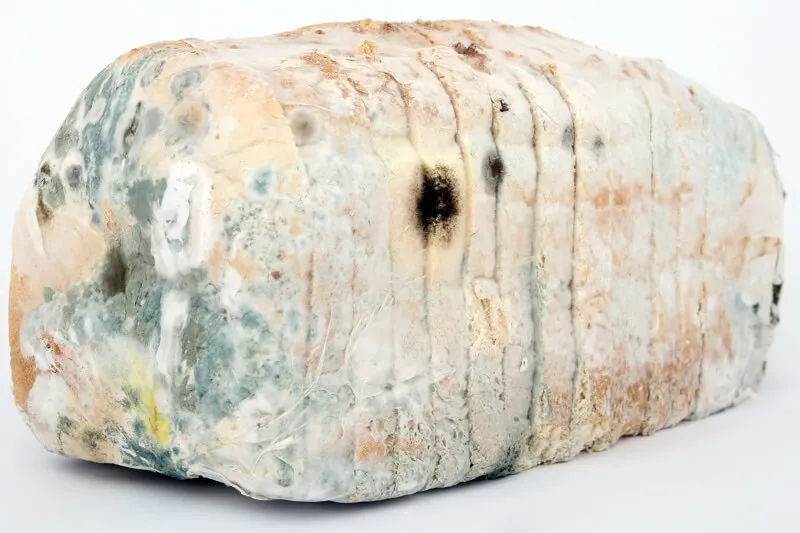As devoted pet parents, we constantly strive to provide the best for our canine companions, especially when it comes to their diet. While a balanced commercial dog food is typically the safest bet, the temptation to share our human meals, particularly delicious cuts of meat, is often strong. However, it’s crucial to understand that not all meats are created equal when it comes to canine consumption. Giving your dog the wrong type of meat, or meat prepared incorrectly, can lead to serious health issues, ranging from mild digestive upset to life-threatening conditions. Knowing What Meat Should You Never Give A Dog is fundamental to ensuring their safety and well-being. This guide delves into specific types of meat and meat preparations that are harmful to dogs, explaining the dangers and offering advice for safe feeding practices. For a broader understanding of human foods to avoid, you can learn more about what human foods can a dog not have.
The Dangers of Certain Meats for Dogs
While meat is a natural part of a dog’s diet, the way it’s presented to them by humans can often be problematic. Many common practices in human food preparation render meat unsuitable or even toxic for dogs.
Raw or Undercooked Meat and Poultry: A Risky Business
Feeding raw meat to dogs has become a popular trend, but it carries significant health risks for both pets and their human families. Raw or undercooked meats, including chicken, beef, pork, and fish, can harbor dangerous bacteria such as Salmonella, E. coli, Clostridium, and Campylobacter. These bacteria can cause severe gastrointestinal issues in dogs, including vomiting, diarrhea, abdominal pain, and lethargy. In some cases, these infections can be fatal, particularly in puppies, senior dogs, or those with compromised immune systems. Beyond direct illness to the dog, these pathogens can be shed in their feces, posing a risk of cross-contamination to humans in the household.
Parasites like tapeworms and roundworms can also be transmitted through raw or undercooked meat, leading to internal infestations that require veterinary intervention. While a dog’s digestive system is more acidic than a human’s, it is not impervious to these threats.
Cooked Bones: Choking Hazards and Internal Damage
It might seem natural to give a dog a bone, but cooked bones, regardless of the meat type, are incredibly dangerous. Unlike raw bones which are softer and more flexible, cooked bones become brittle and can easily splinter. These sharp fragments can cause a multitude of problems:
- Choking: Bone pieces can get lodged in the throat.
- Oral Injuries: Splinters can damage teeth, gums, and the tongue.
- Internal Obstructions: Fragments can block the esophagus, stomach, or intestines, requiring emergency surgery.
- Perforation: Sharp edges can puncture the digestive tract, leading to life-threatening peritonitis.
- Constipation: Bone fragments can cause severe constipation or impaction.
Never give your dog cooked bones from chicken, beef, pork, turkey, or any other animal.
High-Fat Meats: Pancreatitis and Digestive Upset
Many human-favorite meats are loaded with fat, which can be detrimental to a dog’s health. Fatty foods, such as bacon, sausage, hot dogs, ribs, and fried chicken, can cause acute pancreatitis, an inflammation of the pancreas. Pancreatitis is an extremely painful and serious condition that can lead to vomiting, diarrhea, abdominal pain, fever, and lethargy. In severe cases, it can be life-threatening. Some breeds, like Miniature Schnauzers and Yorkshire Terriers, are particularly prone to pancreatitis. Regular feeding of fatty scraps can also contribute to obesity and other long-term health issues.
 A sad-looking dog staring at a plate of fatty foods like bacon, ribs, and fried chicken, emphasizing why dogs should avoid these rich meats.
A sad-looking dog staring at a plate of fatty foods like bacon, ribs, and fried chicken, emphasizing why dogs should avoid these rich meats.
Processed Meats and Deli Slices: Sodium, Nitrates, and Spices
Convenient processed meats like deli turkey, ham, pepperoni, and jerky are not suitable for dogs. They are typically high in sodium, which can lead to sodium ion poisoning, causing excessive thirst and urination, vomiting, diarrhea, and in severe cases, kidney damage, seizures, and even death. Many processed meats also contain nitrates, nitrites, and other preservatives that are not beneficial for canine health. Additionally, these products often include spices, garlic, and onion powder, which are toxic to dogs.
Heavily Spiced or Marinated Meats: Hidden Toxins
Meats prepared for human consumption often feature a rich array of spices, herbs, and marinades. While delicious for us, many of these ingredients are harmful to dogs. Onions and garlic, in all forms (raw, cooked, powdered), are particularly toxic. They contain compounds that can damage a dog’s red blood cells, leading to anemia and potentially organ damage. Symptoms can include lethargy, weakness, pale gums, and difficulty breathing.
Salt is another common seasoning found in marinated and spiced meats. Too much salt can lead to salt poisoning, as mentioned previously. Other common spices like chili powder, cayenne pepper, and even black pepper can cause severe gastrointestinal upset and discomfort for dogs. Even seemingly innocuous herbs might have negative effects. It is far safer to offer plain, unseasoned cooked meat to your dog.
 A close-up of a dog looking at a sliced onion, visually representing the danger of onions to canine health.
A close-up of a dog looking at a sliced onion, visually representing the danger of onions to canine health.
Spoiled Meat: Bacterial and Toxin Overload
Just like humans, dogs should never consume spoiled or rotten meat. While dogs have stronger stomachs than humans and a higher tolerance for certain bacteria, spoiled meat can still cause severe food poisoning. Decaying meat can host a proliferation of harmful bacteria and produce mycotoxins, which can lead to intense vomiting, diarrhea, muscle tremors, seizures, and other serious neurological problems. Always ensure any meat given to your dog is fresh and properly stored. If you’re looking for broader guidance on avoiding bad foods, our article on what are the food that dogs can t eat offers more insights.
 A clove of garlic next to a dog's snout, illustrating the common household item's toxicity for dogs.
A clove of garlic next to a dog's snout, illustrating the common household item's toxicity for dogs.
Understanding Why These Meats Are Dangerous
To reiterate, the primary reasons certain meats or meat preparations are dangerous for dogs include:
- Bacterial Contamination: Raw meat can carry pathogens like Salmonella, E. coli, and Campylobacter, causing severe illness.
- Parasitic Infections: Undercooked meat can transmit parasites such as roundworms and tapeworms.
- Choking and Internal Injuries: Cooked bones splinter, posing risks of choking, obstructions, and internal perforations.
- Digestive Issues and Pancreatitis: High-fat meats overwork the pancreas, leading to painful inflammation.
- Sodium Poisoning and Chemical Additives: Processed meats contain excessive salt and preservatives that are toxic in large amounts.
- Hidden Toxins: Spices like onion and garlic powder, and other seasonings, can cause red blood cell damage or severe gastrointestinal upset.
 A discarded, rotten piece of food in a trash can, symbolizing the dangers of spoiled food for dogs.
A discarded, rotten piece of food in a trash can, symbolizing the dangers of spoiled food for dogs.
Safe Meat Preparation and Feeding Practices
If you wish to supplement your dog’s diet with meat, or offer it as a treat, it’s vital to follow these guidelines:
- Always Cook Meat Thoroughly: Cook all meats (chicken, beef, pork, turkey, etc.) until no pink remains and internal temperatures are safe for human consumption. This kills harmful bacteria and parasites.
- Remove Bones, Skin, and Excess Fat: Before serving, carefully remove all bones (cooked or raw), fatty skin (especially from poultry), and trim off any excessive fat from the meat.
- Avoid Seasonings and Additives: Offer plain, unseasoned meat. No salt, pepper, garlic, onions, or any other spices, sauces, or marinades.
- Introduce New Meats Gradually: When introducing a new type of meat, start with a small amount to monitor for any adverse reactions, especially if your dog has a sensitive stomach.
- Portion Control is Key: Meat should only be a small part of your dog’s overall diet and offered as an occasional treat. The bulk of their calories should come from a balanced, high-quality commercial dog food. If your dog consistently shows disinterest in their regular dog food, you might want to explore options in our article my dog hates dog food what can i feed him.
What to Do If Your Dog Eats Unsafe Meat
Despite our best efforts, accidents happen. If you suspect your dog has ingested a harmful type of meat or meat product, prompt action is essential. For information on other potentially dangerous human foods, see our guide on what human food dogs shouldn t eat.
1. Identify the Offender
Try to determine what type of meat was consumed, how much, and when. This information will be vital for your veterinarian. Save any packaging or remaining evidence if possible.
2. Contact Your Veterinarian or Poison Control Immediately
Do not wait for symptoms to appear. Contact your primary veterinarian or an emergency veterinary clinic right away. You can also call the ASPCA Animal Poison Control Center (APCC) at 888-426-4435, which is available 24/7. Be prepared to describe the situation and answer questions about your dog’s breed, age, weight, and any underlying health conditions.
3. Monitor for Symptoms
While waiting for professional advice, closely observe your dog for any signs of distress. Symptoms can vary depending on the toxin and amount ingested, but commonly include:
- Vomiting
- Diarrhea
- Lethargy or weakness
- Loss of appetite
- Abdominal pain or discomfort (hunched posture, guarding belly)
- Excessive drooling
- Tremors or seizures
- Difficulty breathing
- Pale gums
4. What Not to Do
Never try to induce vomiting or administer any home remedies without explicit instruction from a veterinarian or poison control expert. You could unintentionally cause more harm. Stay calm to avoid further distressing your dog.
Depending on the situation, your vet may need to perform diagnostic tests, induce vomiting, administer fluids through an IV, or prescribe medications. In more severe cases, hospitalization or surgery may be necessary.
 A dog sitting next to a red "Stop" sign with a paw print, accompanied by text offering dog poison emergency tips, emphasizing safety.
A dog sitting next to a red "Stop" sign with a paw print, accompanied by text offering dog poison emergency tips, emphasizing safety.
Preventing Accidental Ingestion
Prevention is always the best approach. Here are key measures to keep your dog safe from harmful meats:
- Secure Trash Cans: Use dog-proof trash cans with tight-fitting lids to prevent access to food scraps and spoiled items.
- Supervise During Meals: Do not leave plates of food unattended where your dog can reach them.
- Educate Family Members: Ensure everyone in the household, including children and guests, understands what meat should you never give a dog and why.
- Store Food Properly: Keep raw and cooked meats stored safely out of your dog’s reach.
Conclusion
Understanding what meat should you never give a dog is a critical aspect of responsible pet ownership. While a small amount of plain, well-cooked, lean, boneless, and unseasoned meat can be a healthy treat, many popular human meat dishes and preparations pose serious risks. Raw meat, cooked bones, high-fat meats, processed varieties, and heavily spiced or marinated meats should be strictly avoided. Always prioritize your dog’s health by adhering to safe feeding practices and consulting your veterinarian if you have any doubts or concerns about your dog’s diet. By staying informed and vigilant, you can ensure your beloved canine companion enjoys a long, healthy, and happy life free from preventable dietary dangers.
References
- American Society for the Prevention of Cruelty to Animals (ASPCA). (n.d.). People Foods to Avoid Feeding Your Pets. Retrieved from https://www.aspca.org/pet-care/animal-poison-control/people-foods-avoid-feeding-your-pets
- Cummings Veterinary Medical Center at Tufts University. (n.d.). Foods You Should Never Feed Your Pet. Retrieved from https://vetmed.tufts.edu/news-events/news/foods-you-should-never-feed-your-pet
- Veterinary Medical Teaching Hospital, UC Davis. (n.d.). Toxic Foods and Plants. Retrieved from https://health.ucdavis.edu/vmth/smallanim/internalmed/news/toxic-foods-plants.html
